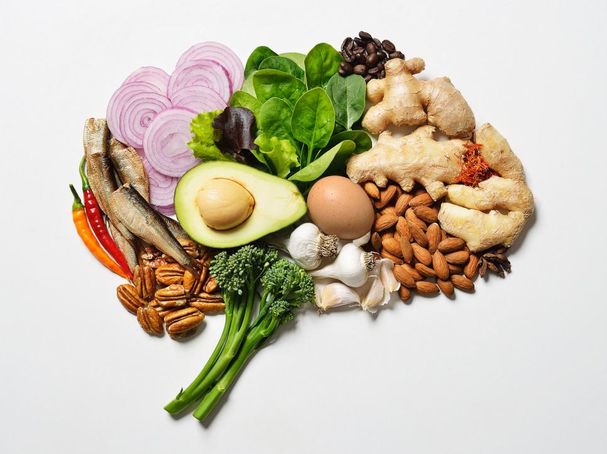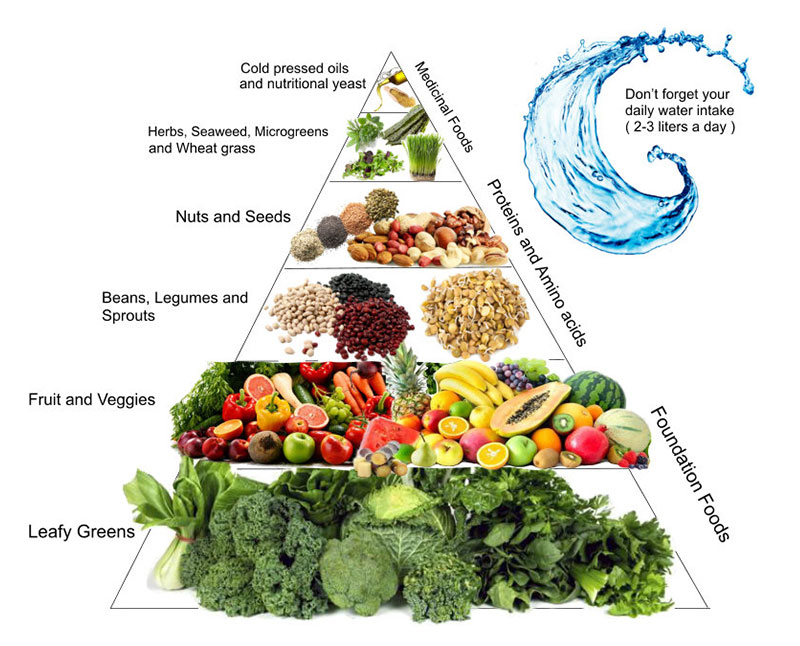| Disclosure: The links on this page are "Affiliate Links" and while these are shown at no costs to our viewers, they generate commissions for our website(s) |
How Diet Can Turn Your Dark Days into Sunshine
Everyone’s entitled to a bad day. The pressures of work, family and even leisure activities can quickly change a sunny day into rain. But, if your dark days linger for weeks or months, you may be in the midst of depression. Fortunately, there are solutions, beginning with your diet.
Depression is defined as a serious mental illness, characterized by lingering negative thoughts. According to the National Institute of Mental Health, over 25% of adults and 10% of children suffer from some form of mental illness. The World Health Organization (WHO) data show that mental illness accounts for 4 out of 10 cases of disability, worldwide. It’s estimated that by the year 2020, mental illness will be the leading cause of disability in women and children.
A Primer on Depression
Researchers aren’t sure why certain people are depressed, while others aren’t. Some believe that it’s a combination of genetic precursors and their environment. What they do know is that people who are depressed seem to fall into certain patterns:
- People who are obese are at a higher risk for depression. Likewise, people who are depressed have a greater preponderance for obesity.
- Many depressed people struggle with alcohol and drug addiction. It’s been shown that alcohol and drugs interfere with moods, sleep and motivation and can even lead to suicidal behavior. Drugs and alcohol also interfere with the effectiveness of depression medications.
- People who abuse caffeinated beverages and sugar are more prone to mood swings.
How Depression is Treated
If you’ve been feeling depressed, the best place to start is with a visit to your physician. He can help you to understand your medical condition and begin identifying treatments to help you get better. In most cases, treatments include:
- Medications
- Behavior therapy
- Changes in your diet
Medications and behavior therapy are beyond the scope of this article. For now, we’ll focus on the changes you can make with your diet that have been proven to help alleviate depression.
Your body’s nervous system is like a series of conduits that transmit electrical pulses. In between nerve endings are synapses , or small spaces that nerve impulses have to cross in order to transmit impulses from one part of the body to the next. The hormone serotonin is the principle hormone that transmits nerve impulse over synapses. It’s found in abundance in the brain, bowels and blood platelets.
Serotonin plays a major role in constricting muscles, regulating cyclic processes and contributes to your well-being, appetite and feelings of happiness. It’s often called the happy hormone . When serotonin levels fall, you begin to experience difficulties with appetite and become depressed.

There are a number of foods that are responsible for reducing serotonin levels. They include:
- Alcohol – In most cases, drinking 1 to 2 alcoholic beverages per day shouldn’t have a negative effect on serotonin levels. However, heavy drinkers deplete serotonin levels, making them prone to depression and anxiety attacks.
- Caffeine – Caffeinated beverages lower serotonin levels and increase your risk for depression, anxiety and poor sleeping patterns.
- High calorie/low nutrient foods – Eating processed, high-calories and refined sugar are great treats in moderation. However, eaten in excess, they cause blood sugar levels to skyrocket, followed by a dramatic drop. They increase fat storage and are responsible for a “crash and burn” feeling.
- Aspartame – while aspartame is lower in calories, it has been shown to decrease serotonin levels.
- Foods deficient in vitamin D – One 2010 study found that people who were depressed had significantly lower levels of vitamin D. Another conducted by the University of Toronto found that people who were depressed were prone to seasonal effective disorder and got better after spending time outdoors and eating more foods rich in vitamin D.
In 2017, Dr. Felice Jacka of Deakin University in Australia published the SMILES trial that investigated the powerful associations between diet and depression. Her 12-week study consisted of 67 moderately to severely depressed men and women, divided into two groups. Before and after the completion of the study, each participant was graded for their depression level, using the MADRS scale ( Montgomery–Åsberg Depression Rating Scale ). Each participant was graded on a scale between 0 to 60; 60 being the most severely depressed.
The first group was made up from half of the participants and were put on a strict Mediterranean diet (also called the ModiMed diet) consisting of high levels of 8 food groups: whole grains, fruits, vegetables, nuts, legumes, lean meats, chicken, seafood and were instructed to reduce their consumption of refined starches, empty calorie and highly-processed foods. They were also required to attend daily dietary support groups with a registered dietitian. The second group was instructed to continue eating their regular unhealthy diet, and were required to attend similar social support sessions.
At the end of the study, the group following the ModiMed diet showed an 11 point improvement in their MADRS scores. Thirty-two percent of the group scored so low, they no longer met the criteria for depression. They showed total remission. People in the unhealthy group showed a 4 point improvement on their MADRS scores. Less than 8% demonstrated evidence of remission. An unexpected result of the diet was cost: it was 19% cheaper than the unhealthy diet.
Another study published in the Journal of Nutritional and Environmental Medicine showed after two years, subjects eating diets rich in anti-oxidants had significantly lower depression scores. So, what are specific examples of what you should eat to lower your risk for depression?

Diet Recommendations to Lower Your Risk for Depression
Researchers now feel that eating foods based on the Mediterranean diet can significantly reduce your risk for depression. The Mediterranean diet includes the following:
- A diet extremely low in refined carbohydrates: sugar, and refined cereals.
- Eliminates all sweets, fried foods and processed meats.
- Limits consumption of sugar-sweetened beverages to two per week and a maximum of two alcoholic drinks per day – preferably red wine.
- Foods low in processed oils from seeds such as cottonseed, safflower and corn oil.
- Lean animal sources of protein rich in iron, zinc and vitamin B12. Lean beef, pork, skinless turkey and chicken.
- Fatty fish. Tuna, shad, sardines, salmon mackerel and anchovies.
- Dark, leafy greens. Spinach, kale and Swiss chard. Leafy greens are rich in vitamins A, C, E, and K.
- Walnuts. Walnuts are one of the richest sources of omega-3 fatty acids that support brain functions and reduce symptoms of depression.
- Avocados. The majority of the fat in avocados is monounsaturated fat in the form of oleic acid. The average avocado contains 4 grams of protein, vitamins B-9, B-6, B-5, vitamin C, vitamin E-12 and are low in sugar and high in fiber.
- Strawberries, blackberries, raspberries and blueberries high in antioxidants.
- Mushrooms. Mushrooms help to lower blood glucose levels. They also work as a natural probiotic, promoting healthy gut bacteria.
- Onions. Onions and garlic reduce the risk of cancers associated with the digestive tract. They also contain high amounts of antioxidants.
- Tomatoes. Studies have shown that the high levels of folate in tomatoes can reduce depression. Folic acid can also prevent high levels of homocysteine that restricts production of serotonin, norepinephrine and dopamine.
- Beans. Beans help to stabilize blood glucose levels.
- Seeds. Seeds such as flaxseeds, hemp seeds and chia seeds are rich in omega-3 fatty acids.
- Apples. Apples are high in antioxidants that can help with cellular repair and reduces inflammation. They are also a good source of dietary fiber.
- Whole grains. Whole grain pasta, brown rice and oatmeal.
- Nuts. In particular, brazil nuts.
- Seafood. Oysters, freshwater and saltwater fish, crab, sardines, and clams.
- Low-fat dairy products.
- Canola and soybean oils.
If you’re serious about reducing your risk for depression and anxiety, the best place to start is in your doctor’s office. Discuss the feelings you’ve been having and ask him what you can do about it. A sound program of mental health advice, medications, therapy and improvements in your diet should have you back to normal soon.









